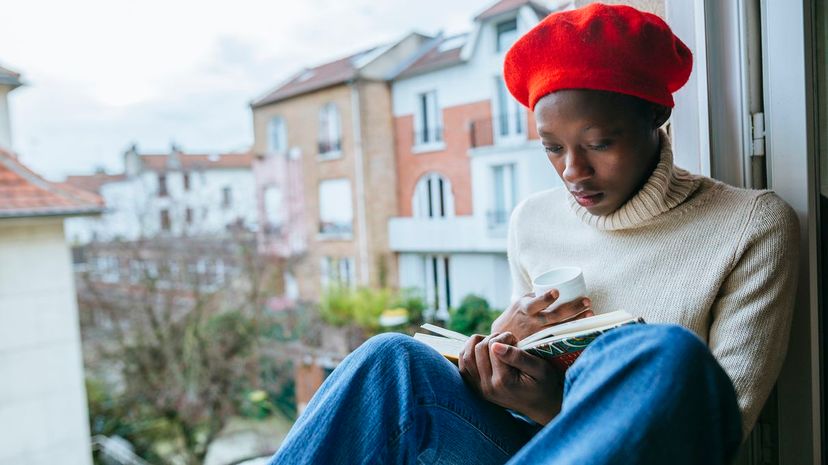
About This Quiz
Ah, France! It’s the country of fine wines and cheeses, glorious rolling green vineyards and cosmopolitan centers of culture — and tricky verb tenses. While you can get by in a superficial conversation with the basic present and past tenses, anyone who has traveled in France knows that conversation never stays superficial. You ask someone for their name, and they ask you how you identify politically. Ask where the bathroom is, but don’t be surprised if the bartender asks you what you think about organized religion.
So, to converse in France, you’ll need to be familiar with a range of tenses. The past does not always convey that something happened once and is over, as in the passé composé. It can also specifically indicate when something happened in the past over a long period, as in the time you were working in a French vineyard. Of course, you’ll need to be savvy with the subjunctive as well, so you can discuss things of an uncertain nature. If you want to tell a story about how you got the job at the vineyard in the first place, you’ll want to be comfortable with the plus-que-parfait.
Es-tu prêt? Get yourself ready to travel in the 29 French-speaking countries in the world by choosing the right tense for these verbs!

The verb “aimer,” to love or like, follows regular conjugation rules for an -ER verb. The verb in the sentence is in present tense, stating that “I don’t like this fish.” This construction “n’-pas” negates the verb, meaning “not one bit.”
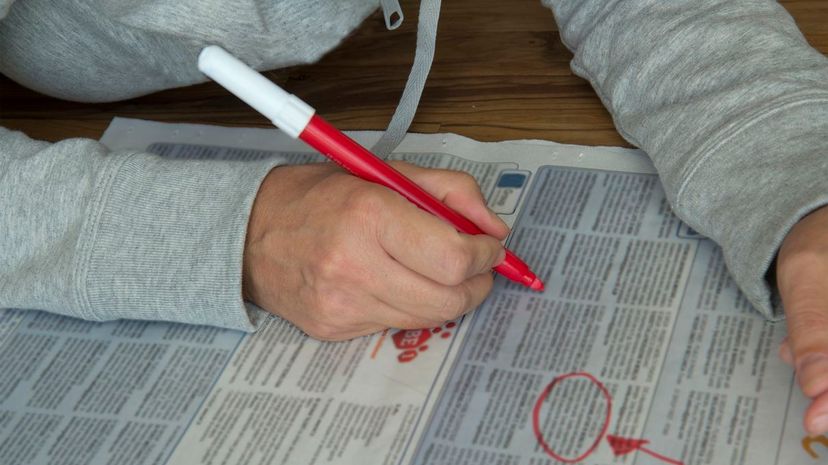
In this sentence, “désir trouver” designates something happening in the present. Even though “trouver" (to find), is in the infinitive, the main action of the sentence, desiring, happens in the present. The speaker wants to find a job in the present moment.

This sentence contains an example of le passé composé, a tense used to discuss events that happened in the past that have been completed. In this sentence, someone asks a friend why they showed a picture to their grandmother, something that happened once and is over.
Advertisement

This sentence shows an example of the imperfect tense. This tense can be used to illustrate something that happened over a period of time, as opposed to a single occurrence.

In this sentence, the first verb occurs in the present and asks, “If Jacques talks to Camille, will he learn the truth?” The second verb, "apprendra," then takes the future tense, since it is calling into question what will happen.

This sentence refers to the present, as the speaker in the sentence currently loves to eat croissants. This quintessentially French food did not originate in France, but in Austria.
Advertisement
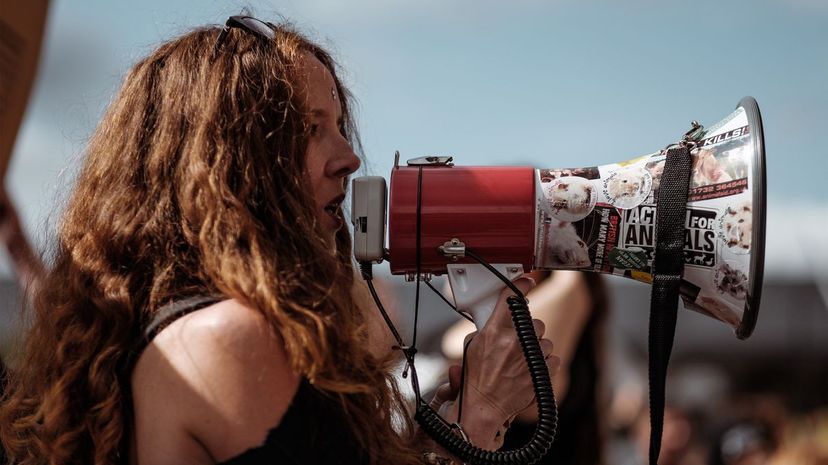
This sentence contains the plus-que-parfait, a tense that is helpful In narrating a sequence of events. It denotes an event that occurred before something else happened. In this instance, it’s implied that Emile set up the meeting before something else happened.
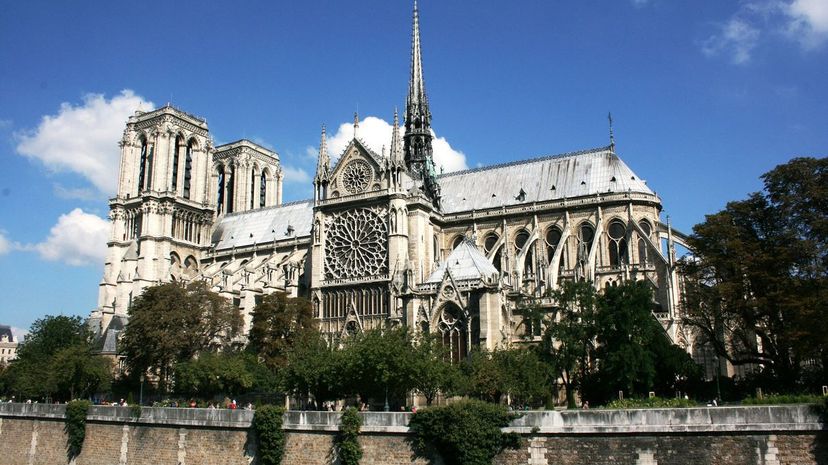
In this sentence, the verb “voir," to see, occurs in the passé composé, asking someone if they have seen the cathedral of Notre Dame. The iconic cathedral had a catastrophic fire on April 15, 2019.

The conditonnel tense appears here. The speaker of the sentence conveys that they “would give anything for a glass of water.” The conditional tense shows what someone would do by adding the imperfect ending to the infinitive verb.
Advertisement

The action in this sentence takes place in the future, as the speaker asserts that “We will go to the Burgundy region.” The future tense takes the infinitive of the verb and adds the regular ending on the end.
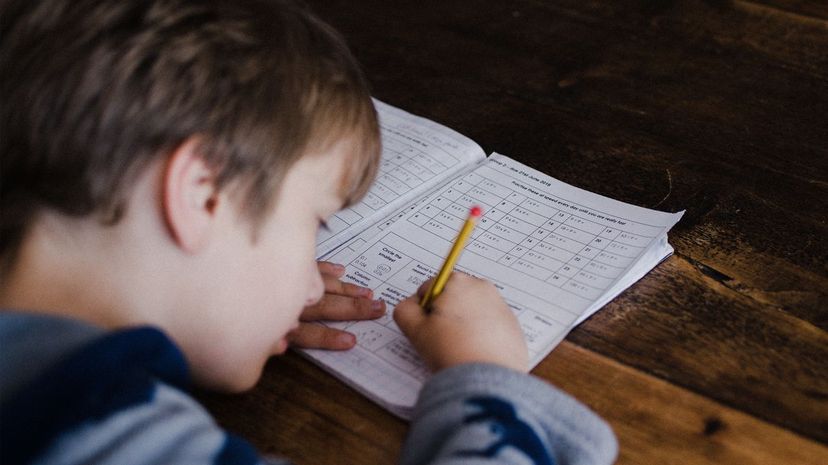
This sentence contains an example of the subjunctive, a verb form called a “mood” that shows a sense of uncertainty in whether the action will take place or not. In this case, even though it’s important for the homework to be finished, it’s unclear whether or not that will happen.
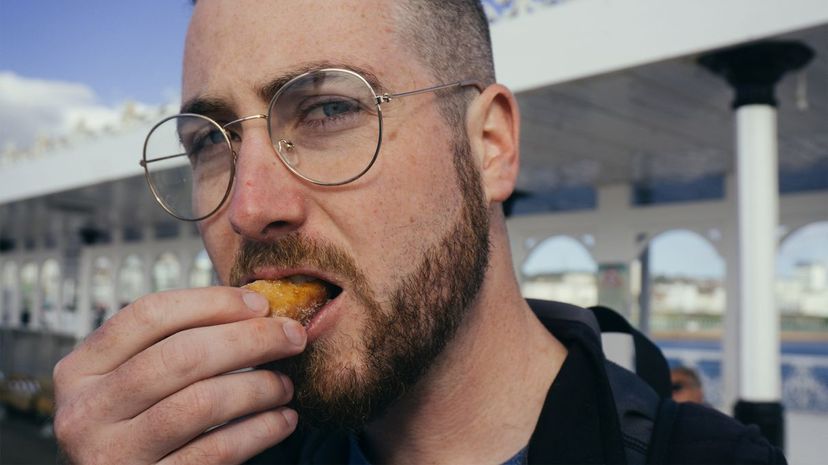
The verb construction “aura mangé” is an example of the future perfect. This tense can be used to show that something will have happened, as in this instance, “When you arrive, he will have already eaten.”
Advertisement
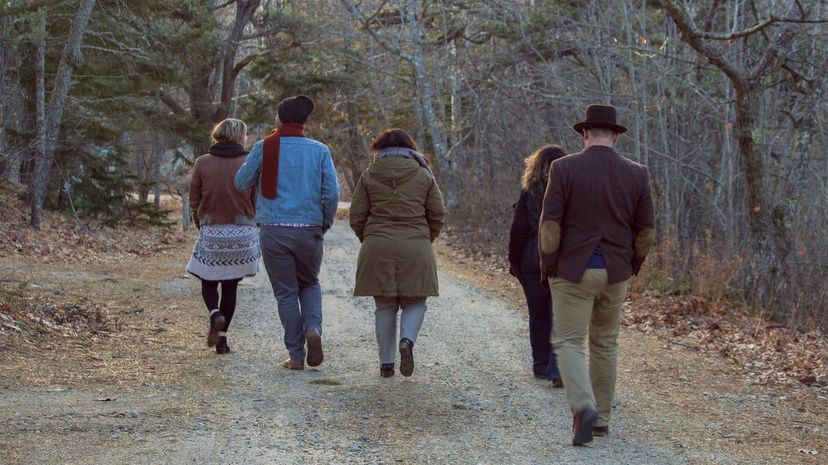
This sentence is constructed in the passé composé. The passé composé denotes an action that has been recently completed and is useful in showing when something occurred in a sequence of events.
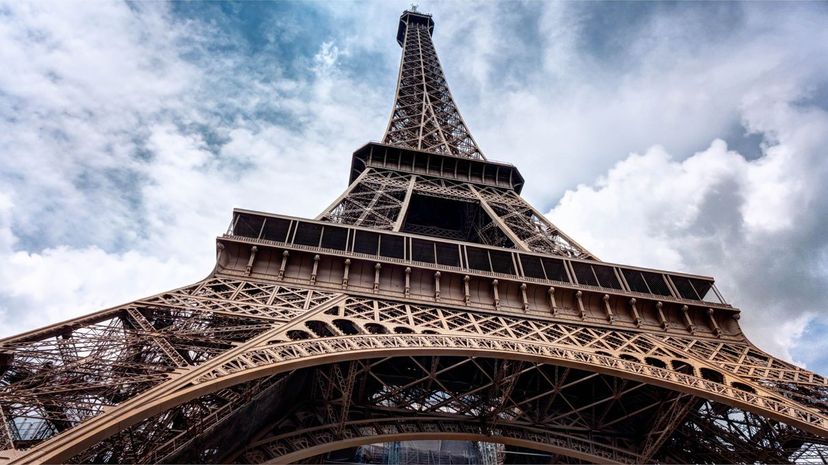
This sentence contains an example of the subjunctive, as the speaker expresses doubt that the second person will see the Eiffel Tower. The Eiffel Tower was built in Paris in 1889 as an entrance to the World’s Fair.
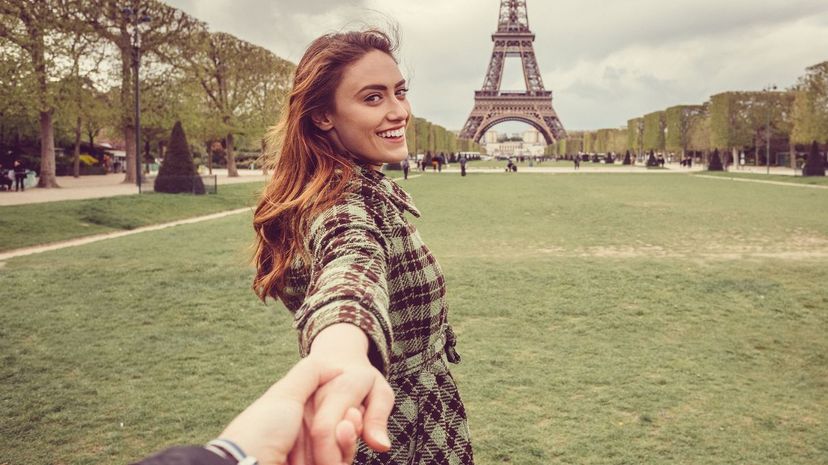
This sentences uses the conditional to ask someone whether they would climb the Eiffel Tower. Climbing the tower's 1,050 feet is no small feat. The stairs take visitors to the first two levels, and the third can be accessed by lift.
Advertisement

The verb preferir, in the present tense, asks whether the second person prefers cheese from goats or from cows. Fromage de brebis, a nutty, savory cheese is a specialty of the Basque region of northern France.
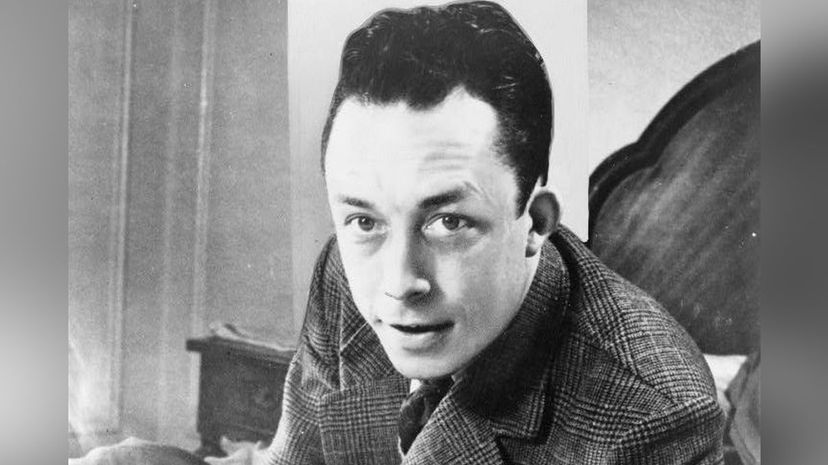
This question asks whether someone has read “The Stranger” by Albert Camus, a question that takes the passé composé. “The Stranger” stands as one of the definitive texts of French Existentialism.
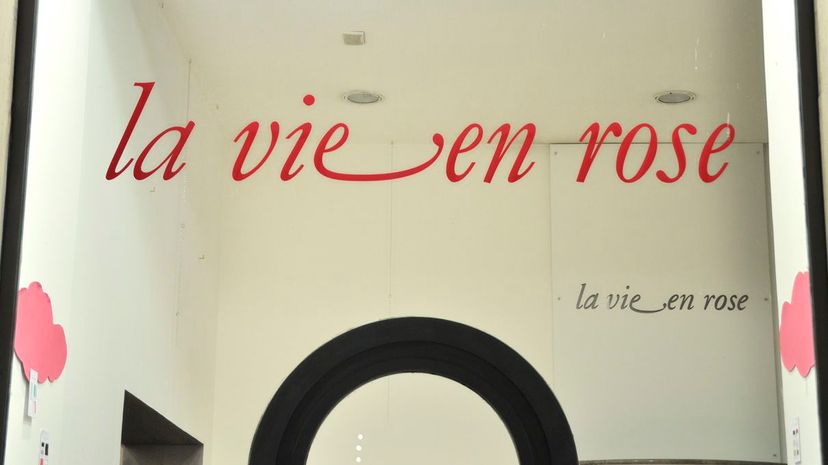
The future perfect composes the second verb in this sentence, meaning “you will have heard.” “Le Vie en Rose,” is an iconic French song which was written on the Champs-Elyssées in 1945. On a visit to France, one is sure to hear it playing in the streets and metros.
Advertisement
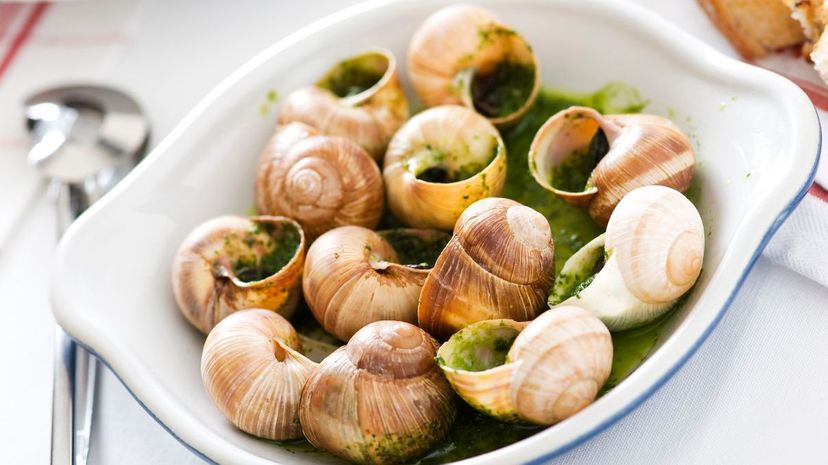
In this sentence, someone commands another person to taste these escargot — the French delicacy of roasted snail meat, served often in its shells, swimming in butter and garlic. Though many snub their noses at the snail delicacy, they are often pleasantly surprised at the savory flavor.
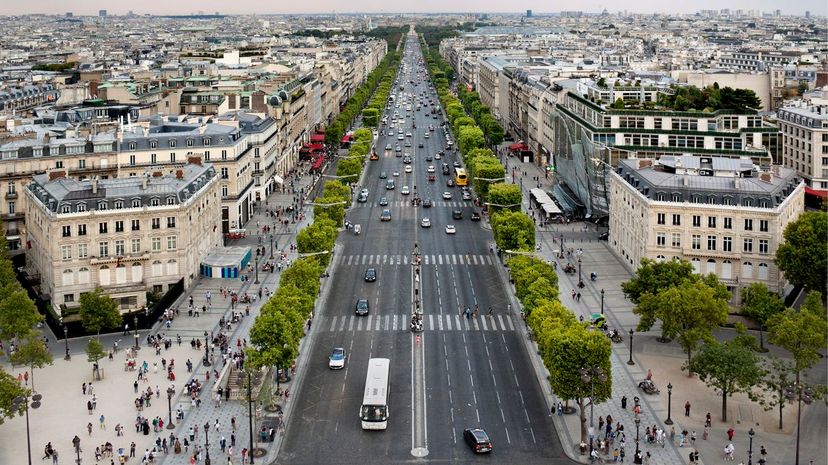
This sentence points to action happening in the past, as it declares, “Let’s go to the Champs Elysées when we’re in Paris.” The Champs Elyseés is perhaps the most famous street in Paris, ending in the Arc de Triomphe.
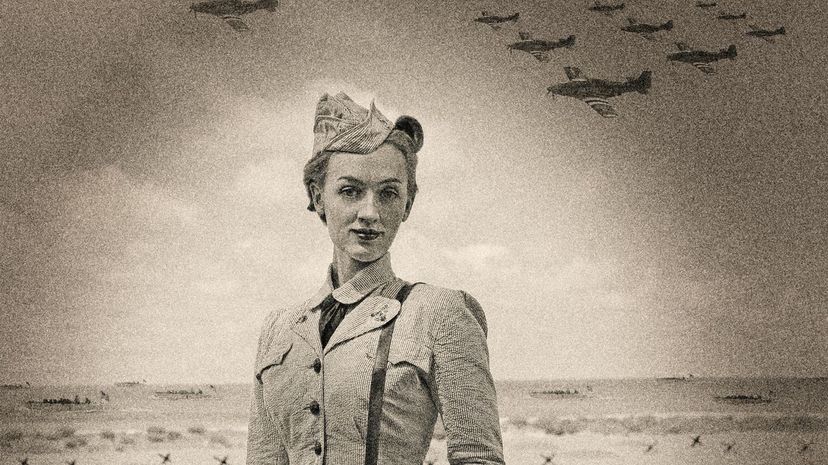
This sentence inquires whether someone’s grandmother was in the Resistance during World War II. Because it’s asking about an extended period of time in the past, this refers to the imperfect.
Advertisement

This sentence shows an example of the plus-que-parfait, as it narrates an event that happened after another event had already occurred. "He had left Charles de Gaulle (airport) before she arrived.”

This sentence has an example of the passé composé, which denotes an action which was completed in a single setting, as opposed to continuing action. The earlier part of the sentence contains the imperfect, referring to the continuing period when the person was 20 years old.
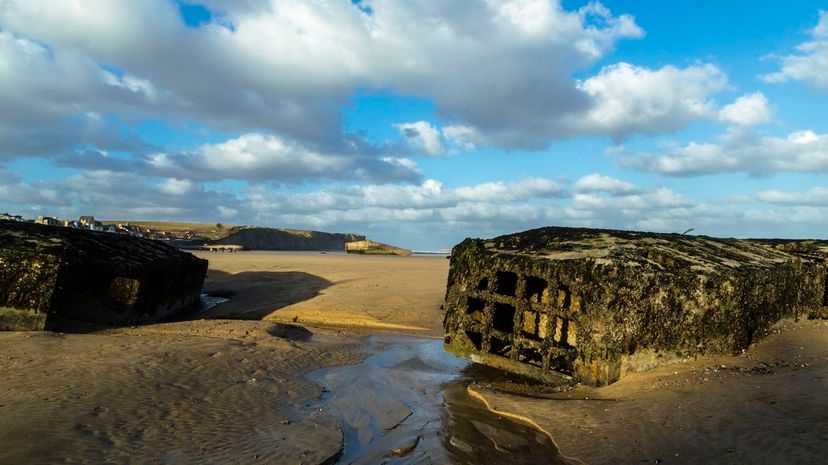
The second verb in this sentence takes the future tense to show that when the person being spoken to visits the French region of Normandy, they will see the “plages du débarquement,” or the D-Day landing beaches.
Advertisement

This sentence begins with the adverb, “avant,” meaning before, which is a good indication that the sentence will contain the plus-que-parfait. This tense indicates that something had happened before something else.

The verb here takes the passé composé, as a waiter asks a patron if they have decided what to order. When in a restaurant in France, it’s polite to respond beginning with “Je voudrais,” which means ?I would like."

This sentence is in the present tense, indicating that one can take red wine or mineral water with their meal. In France, waiters will commonly ask if you would like l’eau gazeuse ou plate, which means water with gas or still.
Advertisement

This sentence indicates that it is important for Madame Lissette to read the letter from Jacques, which means that it using the subjonctif in order to demonstrate necessity. The subjunctive appears when something is necessary but uncertain.
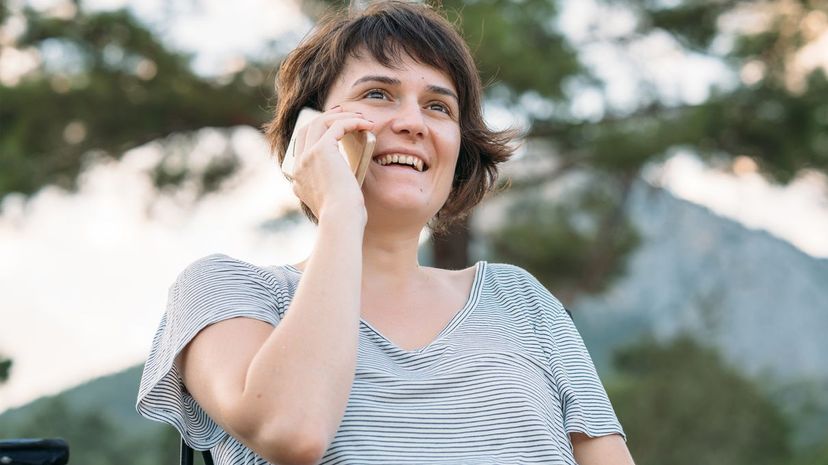
This question, which means “What is Camille like?” takes the present tense. This question could be answered by describing what someone does for a living, or by listing adjectives that describe them, like capable or dynamique.
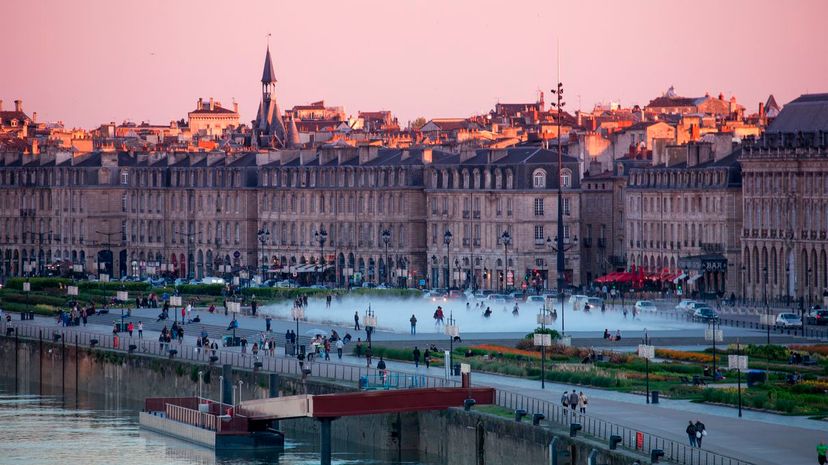
This sentence tells us that Elle likes to live in Bordeaux. Even though it contains the infinitive form of “habiter” the action occurs in the present. Some of the most famous wines in France originate in Bordeaux, like the wines of St. Emilion.
Advertisement

This sentence uses the conditionnel to politely make a request that Marc would help with some research. The conditional can soften a request, showing that it is not a sure thing but depends on how someone responds.

This sentence contains an example of the imperative, the tense used to make a command. The formation of this tense is quite simple. It takes the present tense formation and removes the subject pronouns that usually precede it.

The passé composé directs the action of this sentence. For some verbs in the passé composé, the verb is formed with the auxiliary “être.“ Most verbs that take this auxiliary show motion or a state of being.
Advertisement

This sentence contains the subjonctif, conveying the emotion that someone feels it is a shame that Antoine could not find Pascal. The subjunctive is used to show emotion when a second subject appears in the subordinate clause.
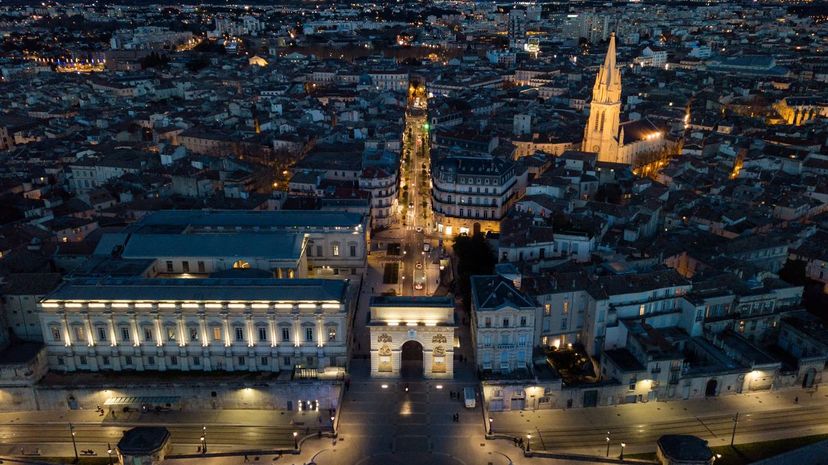
This sentences uses the plus-que-parfait to describe an event that happened before something else. Though the other event is not told in the sentence, it is implied by the verb tense that the speaker had left for vacation before something else happened.